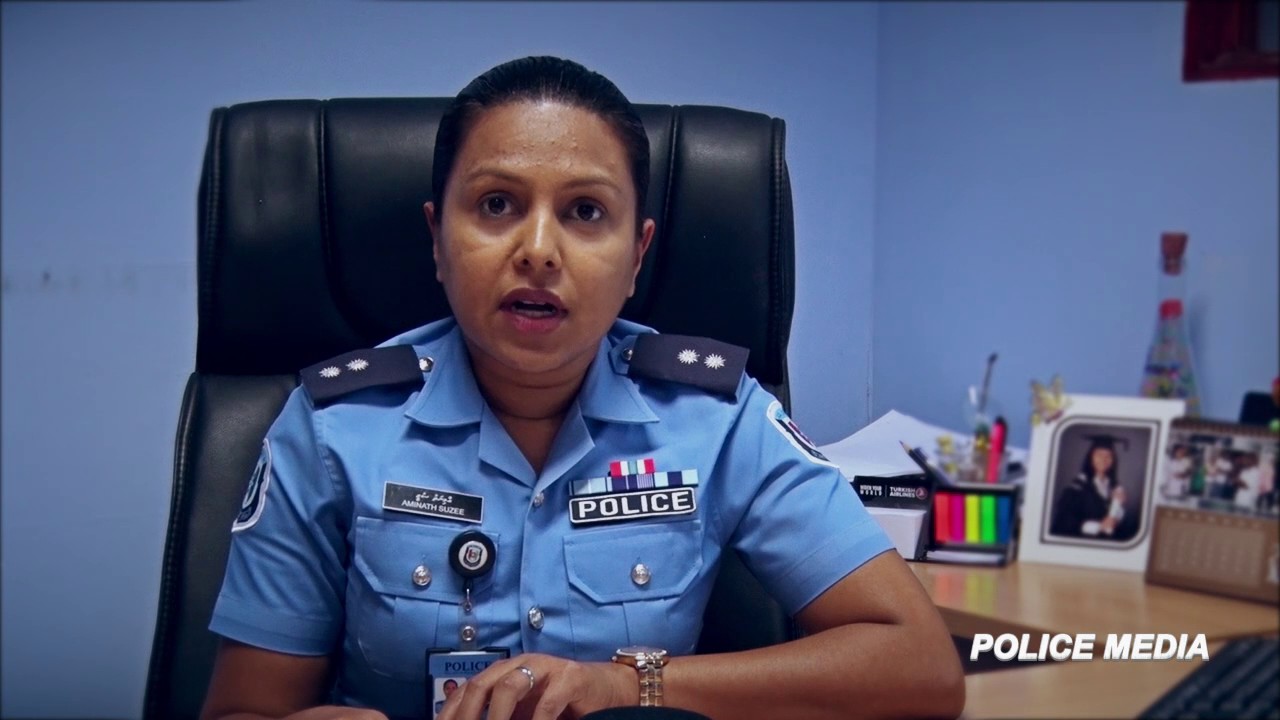Maldives Has Highest Percentage Of Women Police In South And SE Asia
P.K. BALACHANDRAN

MALE: With 7.4% of its police force being women, the 100% Islamic Maldives has the highest percentage of female police officers in South and South-East Asia.
The South Asian average is a dismal 5%, according to “Rough Roads To Equality:. Women in Police Force”, a study done by the New Delhi-based Commonwealth Human Rights Initiative (CHRI).
In fact, there is under-representation of women in all police forces in the world. England and Wales are among the rare bright spots with 28.6% of the police there being women. In the US, women account for only 12% of the police and other law enforcement agencies.
However, despite the distinction of having the highest percentage of women in its ranks, the Maldivian police force has to have more female officers.
“We are actively trying to encourage more females in the service," said Aminath Suzee, the country's female Chief Inspector of Police in the capital city of Male.
"There are a number of reasons why women, despite being academically more gifted than many of the men, do not join up. This includes cultural and religious reasons, as well as the desire to stay at home and look after the family, and also the misguided thought that this is a chauvinist place that favors men,” Aminath said.
“But the service clamps down very hard on sexual abuse. In my opinion, it is a great place to work," she added.
The Maldives Police Force is one of the youngest in the region, having only been separated from the Army only 13 years ago. The country, with its large territory but immense amount of sea, makes policing very challenging.
Aminath and her female colleague, Chief Inspector Izmia Zahir, are pioneers in the Maldivian police force, having joined the service when there were no female commissioned officers.
"At the beginning the country did not really accept female police officers. When I began I was the only woman in forensics. But thanks to the opportunities given to me by the service, I won a scholarship to study at the University of Hull in northern England, and when I returned I was appointed head of the forensic laboratory,” Aminath said.
An innovator, Aminath believes that knowledge can be acquired from a variety of sources, not just the classroom.
“I tell my staff to watch the TV show Narcos, which describes the life and eventful capture and death of the Colombian drug lord Pablo Escobar, as it deals with situations that we can encounter."
Indeed, drugs are one of the biggest issues facing the Maldivian police. Some of the drugs are in transit and some are consumed by the local population.
"Heroin and the cannabis are the most popular drugs in the country," Aminath said.
"Other drugs, such as ketamine and cocaine, we see mainly in transit. Not only is it a criminal offence to take illegal drugs, but they often encourage other crimes, such as robbery and burglary, as well as gang warfare. Some of the people caught up in this are as young as 13," she added.
About 60 per cent of the inhabited islands of the Maldives have a police presence, even if it is just a post. The remote islands are lacking in female officers.
"It is in these remote islands that we need more female officers.These are places that tend to be culturally more conservative,” Aminath explained.
“The changes that we have seen in Male are taking time to reach remote islands, but we are definitely getting there, " she said.
Aminath female collegue Chief Inspector Izmia Zahir joined the service by chance. She was hoping to do research for her Master's degree on the police, but was told that she could only access the data if she wore uniform. Soon she found herself in the police force. Izmia went on to complete training courses in Singapore and with the Brunei Police.
Among Best In The World
Dr Michael Kennedy, Senior Lecturer in policing at Western Sydney University, is highly impressed with the female officers of the Maldivian police.
"By world standards the female police officers are as good as any police officers I've ever worked with. We run a bachelor's degree in policing in the Maldives, and none of the women has failed the course. They are one of the best trained police not just in the region, but in the world." Kennedy said emphatically.
Both Aminath and Izmia commended the opportunities they were given to study and travel. They represented their organization at the Asia Region Law Enforcement Management Program (ARLEMP) in Vietnam, and also at the first Asia Region Women Police Conference in Bangladesh.



